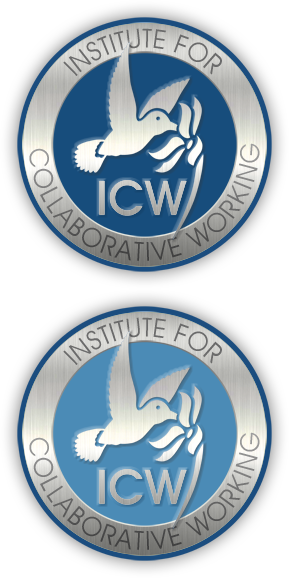
HOW A NEW STANDARD IS HELPING SMALL FIRMS THINK BIG
Originally published by Ann Brady on 12 August 2021 on iso.org
Better buying power, greater efficiencies and more innovative ideas are not just for big businesses. The publication of ISO 44003 is helping smaller players flex their collective muscle by making the most of strategic partnerships.
How many of us cooped up at home during the lockdowns and travel restrictions of the past year haven't dreamed of seeking out a simpler life, with easy access to nature, in a warm climate, sleeping underneath the stars? Some residents of a village in Jordan near the ancient city of Petra have done just that, leaving their bricks-and-mortar homes to live illegally in the caves of this UNESCO World Heritage Site hidden among the pink sandstone cliffs of south Jordan.
Their move, however, was driven more by economic necessity than realising a fantasy. These are Bedouins who used to make their living from the thousands of tourists who flocked to the "Rose City" daily - the café owners, the donkey and camel owners, the jewellery sellers. A report in The Times newspaper highlights their plight, saying the unfolding pandemic has been an "unmitigated disaster" for the small businesses of the region as tourism quickly dried up.

 99% of all businesses in OECD countries are SMEs
99% of all businesses in OECD countries are SMEs
DRIVERS OF ECONOMIC GROWTH
Micro, small and medium-sized enterprises (MSMEs) are the bread and butter of an economy. They comprise anything from tradespeople to hairdressers, freelancers to larger companies with a turnover in the millions. Some have bigger workforces; others employ fewer than ten. Stephan Klingebiel, Director of UNDP Seoul Policy Centre, speaking at a webinar in July 2020 co-hosted by the United Nations Development Programme (UNDP) and the Korean International Trade Association, described SMEs as driving national output, jobs and capital flow.
"Unleashing the capacity of the private sector would have been impossible without SMEs," he said. "But global challenges, like the COVID-19 crisis, affect businesses and livelihoods and it is in all our interests to address these challenges."
In these unpredictable and uncertain times, businesses large and small have taken a battering, but the prospects for many MSMEs around the world look cloudy at best. A report by the Organisation for Economic Co-operation and Development (OECD) on the impact of COVID-19 on SMEs finds that, from being at the centre of the disruptions at the start of the pandemic, one year later "they stand in an even more precarious position, in particular young firms and start-ups, the self-employed, as well as women-led or minority-owned businesses".
This point was underscored in a session at the World Economic Forum's virtual Global Technology Governance Summit in April this year. Before the health emergency, SMEs in OECD countries represented 99% of all businesses, 60% of employment, and up to 60% of value added in the economy. Yet, despite the crisis, their potential remains untapped.
BUILDING TRUSTED RELATIONSHIPS
So how can we build back better and create an environment that facilitates access to finance and continuous investment in MSMEs to realise their full potential? If we have learned just one lesson from the past year, it is that collaboration, working together and building trusted relationships have never been more important. That is why the publication in April this year of ISO 44003, Collaborative business relationship management - Guidelines for micro, small and medium-sized enterprises on the implementation of the fundamental principles, could not have been more timely.
The standard is the latest in the ISO 44000 series which includes ISO 44001, Collaborative business relationship management systems - Requirements and framework, and ISO 44002, Collaborative business relationship management systems - Guidelines on the implementation of ISO 44001.
The importance of SMEs to economic growth and employment is crucial.
CHALLENGES AND OPPORTUNITIES
David Hawkins is Chief Operating Officer at the Institute for Collaborative Working and Chair of ISO/TC 286, the ISO technical committee for collaborative business relationship management that developed the standards. He acknowledges the challenges ahead but also sees a silver lining in the many examples of larger organisations that are adopting a collaborative approach to help where they can.
"Clearly, many SMEs have struggled and the degree to which all are, to some extent, interdependently linked to their business communities has helped them pull through. The encouraging sign through COVID has been greater recognition of the benefits that collaborative working can provide," he says. He goes on to explain that those organisations that already had "structured approaches to their relationships" were better prepared and were therefore able to react and respond more quickly. "The importance of SMEs to economic growth and employment is crucial, so the introduction of ISO 44003 will, we hope, encourage more MSMEs to consider how they can harness collaboration."
A COLLABORATIVE APPROACH
This last point is worth making as the introduction of ISO 44001, he says, was seen by many smaller organisations as something for big companies. The business environment is a tough one these days and MSMEs struggle to avail of the opportunities in working together collaboratively. Hawkins says ISO 44003 addresses this issue.
"The introduction of ISO 44003 is something which can introduce a degree of structure to help build more sustainable relationships and thus opportunities for the MSMEs. At the same time, many larger organisations equally recognise the value MSMEs bring, so later this year we hope to publish a parallel guide for larger organisations to show how they can engage better."

Shaun McCarthy, Chair of the Supply Chain Sustainability School and an independent adviser, author and speaker in sustainable business policy and practice, also sees the value of the new ISO standard in promoting collaboration. He says: "The majority of businesses worldwide could be classed as small to medium enterprises and many public procurers around the world have an ambition to do more business with them. Collaboration is key to maximising value from these buyer-supplier relationships."
Collaboration can undoubtedly bring a wide range of benefits to businesses but, as McCarthy points out, the dynamics of a small business are very different from a large one. That is why ISO 44003 can give SMEs an extra boost. He says: "The ISO 44000 series provides essential guidance on managing these relationships in a way that demonstrates you don't have to be big to be collaborative."
CREATING A NEW LEVEL OF DIALOGUE
It is clear that ISO 44003, along with the rest of the 44000 series, can play a significant role in helping MSMEs adjust to the "new normal". Hawkins says that while technology has helped, COVID-19 has shone increased light on organisational resilience, so confidence in external providers will be a key factor going forward.
Sustainable relationships will be important and adopting a structured approach helps build confidence; and ISO standards provide the necessary frameworks for these relationships. "At the institute," he details, "we are piloting a programme based on ISO 44003 so we can encourage MSMEs to develop their approaches and larger organisations to create a new level of dialogue."
David Murray, publisher of The Business Magazine, based in the UK, says that the SME sector is where enterprise, innovation and productivity are at their best. With the help of an International Standard like ISO 44003, the sector stands a greater chance of building a stronger recovery, thereby getting the economy moving again and helping us all to realise our dreams.

